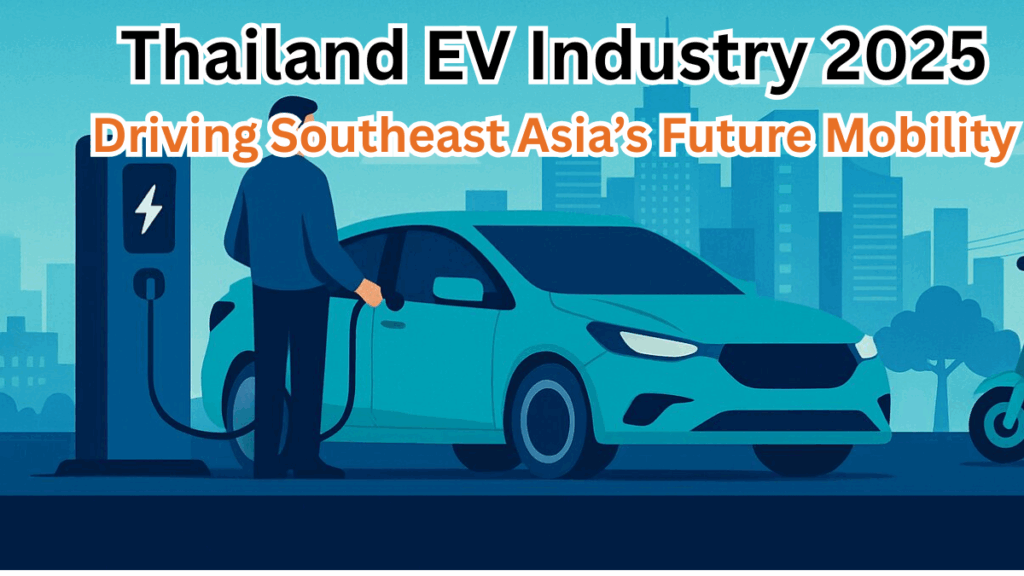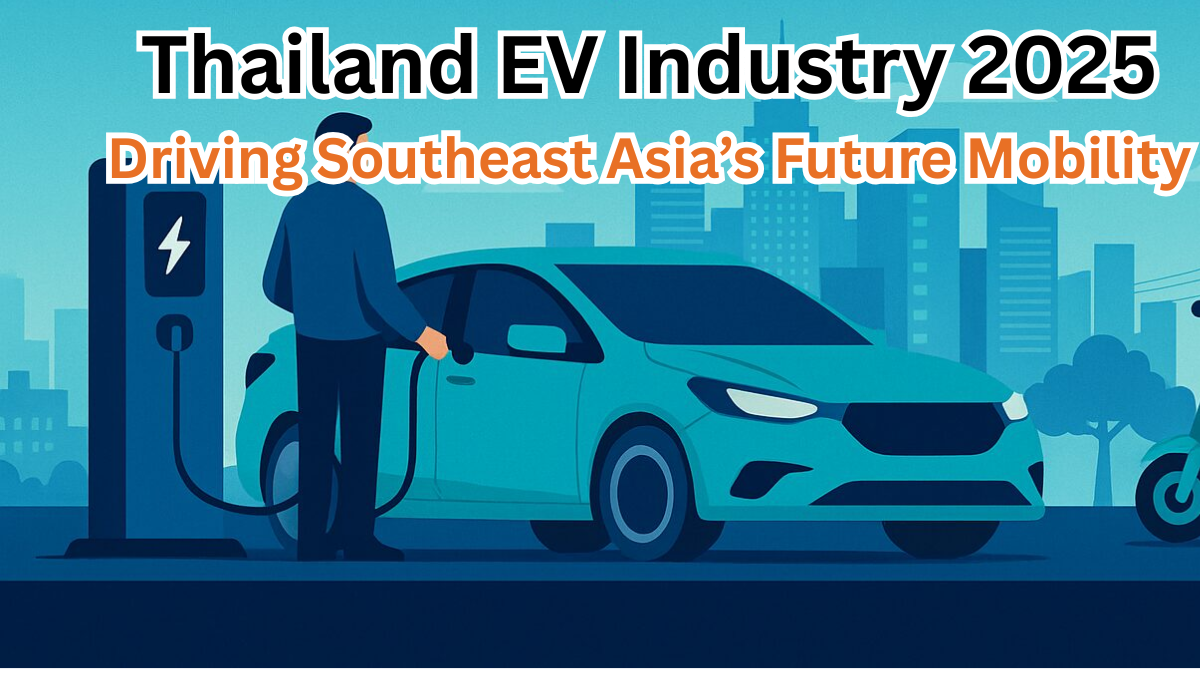The Thailand EV Industry 2025 is rapidly transforming Southeast Asia’s automotive landscape. With a surge in electric vehicle (EV) adoption, robust manufacturing capabilities, and a commitment to green mobility, Thailand is positioning itself as a regional leader in sustainable transportation.

Thailand’s EV Market: A Snapshot
Thailand’s EV market is experiencing significant growth, driven by both domestic adoption and export opportunities.
Key Statistics
| Metric | 2024 Data | 2025 Projection |
|---|---|---|
| Total Car Sales | 570,000 units | 600,000 units |
| EV Market Share | 13% | ~20% |
| EV Registrations (7 months) | 66,000 units | — |
| BEV Sales CAGR (2023–2030) | — | 17.7% |
Source: nationthailand.com, assets.kpmg.com
In the first half of 2025, Thailand saw a 35% increase in new registrations of pure electric passenger vehicles, with Chinese brands accounting for nearly 90% of these sales (en.people.cn).
EV Manufacturing in Thailand: A Regional Powerhouse
Thailand’s strategic location and established automotive infrastructure make it an attractive hub for EV manufacturing.
Investment Highlights
-
Chinese Automakers: Companies like BYD and Great Wall Motors have invested over $1.4 billion in Thailand’s EV market, establishing production facilities to meet both domestic and export demands (reuters.com).
-
Japanese Presence: Mazda plans to invest 5 billion baht ($150 million) to produce electric compact SUVs in Thailand, aiming for a production target of 100,000 units per year (reuters.com).
-
Domestic Initiatives: Toyota has launched a pilot program in Thailand with nine fully electric Hilux Revo pickup trucks, repurposed as song-taews for public transportation (reuters.com).
Green Mobility: Thailand’s Commitment to Sustainability
Thailand is embracing green mobility as a core component of its environmental strategy.
Policy and Infrastructure Developments
-
EV Policy Adjustments: Thailand has revised its electric vehicle incentive policy to offer automakers more flexibility in meeting domestic production requirements, aiming to enhance exports amid low local demand and rising competition from Chinese brands (reuters.com).
-
Charging Infrastructure: The country plans to have over 12,000 public EV charging stations nationwide by 2025, supporting not just passenger cars but also logistics fleets and public transport (industrysourcing.com).
-
Emission Reduction Goals: At the 26th UN Climate Change Conference (COP26), Thailand announced its commitment to reduce annual greenhouse gas emissions by 20–25% by 2030 and strive to reach carbon neutrality by 2050 (edm01.ubmthailand.com).
Looking Ahead: The Road to 2030
Thailand aims to transition 30% of its auto production to EVs by 2030, focusing initially on promoting EV sales within the country and then replacing its automobile exports with EVs (bolt.earth).
FAQs
1. What is driving the growth of the Thailand EV Industry 2025?
The growth is fueled by government incentives, foreign investments, and a shift towards sustainable transportation solutions.
2. Which countries are investing in Thailand’s EV manufacturing?
Notable investments are from China, Japan, and domestic Thai companies, contributing to a diverse and competitive EV manufacturing landscape.
3. How is Thailand’s EV market performing compared to other Southeast Asian countries?
Thailand’s EV market share has climbed to 13%, surpassing many Southeast Asian nations, indicating robust growth and adoption (virta.global).
4. What are Thailand’s long-term goals for EV adoption?
Thailand aims to have 30% of its auto production as EVs by 2030, with a focus on both domestic sales and exports (bolt.earth).
Click here to learn more
